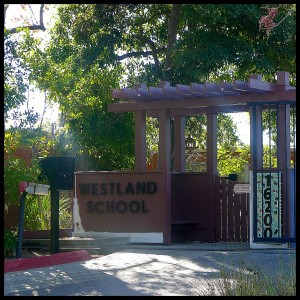

For more about the differences between traditional and progressive private schools: Part 1, Part 2, Part 3, Part 4, Part 5, Part 6
Like Beyond The Brochure on Facebook for blog posts, articles, events and more!


For more about the differences between traditional and progressive private schools: Part 1, Part 2, Part 3, Part 4, Part 5, Part 6
Like Beyond The Brochure on Facebook for blog posts, articles, events and more!
Here are statements from two excellent but very different L.A. private elementary schools, Westland in Los Angeles and Carlthorp in Santa Monica. It can be helpful to read a school’s mission statements, code-of-conduct and other self-descriptions to learn more about its approach to education. Then, comparing and contracting traditional and progressive schools highlights the differences in educational philosophies, how students acquire knowledge, core values and mission of the school. Many schools are a hybrid of several philosophies, while others like those below are examples of schools which stick close to their guiding educational philosophies and are able to clear articulate this fact.

Westland School’s Philosophy
“Among elementary schools in Los Angeles, Westland is widely known and respected as a pioneer in the teaching philosophy known as progressive education. This philosophy evolved in recognition of the limitations of traditional education and its emphasis on training children to memorize and recite large amounts of information. As we enter the 21st-century, information storage has clearly become the domain of technology, but our most human traits—the ability to wonder, to think critically, to question, to share, to create, and to care about each other—are timeless and uniquely valuable. These are the qualities that Westland has sought to develop in our students since our founding more than 60 years ago.”

Carlthorp’s Mission Statement
“Dedicated to the academic, social, and emotional growth of children, our highly qualified faculty and staff create a nurturing environment that inspires children to become life-long learners. Rigorous academics, including foreign language, are balanced with music, art, drama, and physical education. Accelerated classes challenge the gifted, and specialists make learning fun for everyone.
Traditionally academic in approach within a warm and secure setting, Carlthorp School’s philosophy stresses our Code of Conduct and the cohesiveness of all constituents of the School’s family. Students live by the “Code,” which becomes a permanent part of their being. All children strive to do their personal best, inside school and out.
Carlthorp School graduates are prepared to face the rigors of private independent secondary school and the challenges of life. Not only are they talented critical thinkers and speakers, they are also good citizens who are responsible, respectful, and kind.”